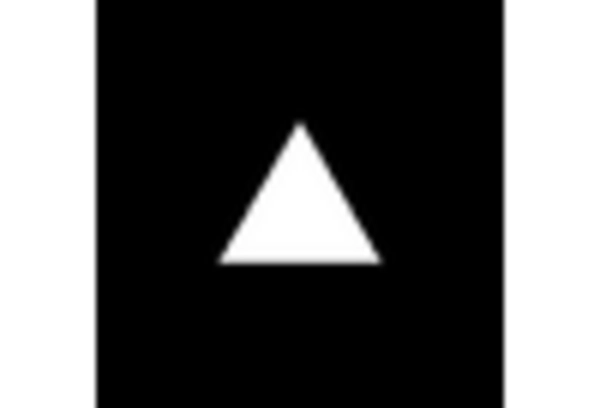Consumer Demand for Convenience
In Spain, the mobile user-authentication market is significantly influenced by the growing consumer demand for convenience and seamless user experiences. As mobile applications proliferate, users increasingly expect quick and easy access to services without compromising security. A recent survey indicates that 70% of Spanish consumers prefer biometric authentication methods, such as fingerprint or facial recognition, over traditional passwords. This shift in consumer preferences drives businesses to adopt innovative authentication solutions that enhance user experience while ensuring security. The mobile user-authentication market is likely to expand as companies strive to meet these evolving consumer expectations, leading to the development of more user-friendly authentication technologies that balance convenience and security.
Increasing Cybersecurity Threats
The mobile user-authentication market is experiencing heightened demand due to the increasing frequency and sophistication of cyber threats in Spain. As organizations face a growing number of data breaches and identity theft incidents, the need for robust authentication solutions becomes paramount. In 2025, it is estimated that cybercrime could cost businesses in Spain upwards of €20 billion annually. This alarming trend compels companies to invest in advanced mobile user-authentication technologies to safeguard sensitive information. The market is likely to see a surge in the adoption of multi-factor authentication (MFA) and biometric solutions, as businesses strive to enhance their security posture. Consequently, the mobile user-authentication market is positioned for significant growth as organizations prioritize cybersecurity measures to protect their assets and maintain customer trust.
Rise of E-commerce and Digital Services
The rise of e-commerce and digital services in Spain is significantly impacting the mobile user-authentication market. As more consumers turn to online shopping and digital platforms for services, the need for secure authentication methods becomes increasingly critical. In 2025, e-commerce sales in Spain are projected to exceed €50 billion, highlighting the importance of secure transactions. Businesses are compelled to implement robust mobile user-authentication solutions to protect customer data and prevent fraud. This trend is likely to drive innovation in the market, as companies seek to enhance security measures while providing a seamless user experience. Consequently, the mobile user-authentication market is expected to grow as organizations adapt to the evolving landscape of digital commerce and prioritize secure authentication practices.
Regulatory Pressures for Data Protection
The mobile user-authentication market is also shaped by stringent regulatory pressures aimed at enhancing data protection in Spain. The implementation of the General Data Protection Regulation (GDPR) has compelled organizations to adopt more secure authentication methods to protect personal data. Non-compliance with these regulations can result in hefty fines, reaching up to €20 million or 4% of annual global turnover, whichever is higher. As a result, businesses are increasingly investing in mobile user-authentication solutions that comply with regulatory standards. This trend not only drives market growth but also encourages the development of innovative technologies that align with legal requirements, ensuring that organizations can effectively protect user data while navigating the complexities of compliance.
Technological Advancements in Mobile Devices
Technological advancements in mobile devices are playing a crucial role in shaping the mobile user-authentication market in Spain. The proliferation of smartphones equipped with advanced sensors and processing capabilities enables the implementation of sophisticated authentication methods. For instance, the integration of biometric sensors, such as iris scanners and facial recognition technology, has become commonplace in high-end devices. This trend is likely to drive the adoption of mobile user-authentication solutions, as consumers increasingly seek devices that offer enhanced security features. Furthermore, the continuous evolution of mobile operating systems and applications supports the development of innovative authentication methods, thereby propelling the growth of the mobile user-authentication market as users demand more secure and efficient ways to access their devices and applications.
















